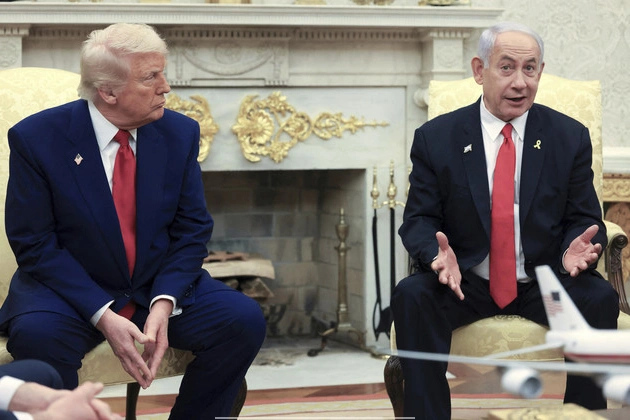
Exploring the intricate dynamics of the US-Israel relationship reveals a complex interplay of interests and tensions. President Donald Trump’s vocal support for Israel contrasts with underlying rifts between his administration and Prime Minister Benjamin Netanyahu.
The Strained Relationship
Reports suggest disagreements between Trump and Netanyahu on handling Middle East crises have strained their ties. While not yet a rupture, growing frustration within the Trump administration towards Israel is evident.
A former Trump official highlighted a segment in the administration less inclined towards Israel, viewing the partnership as valuable but not without expectations.
Challenges and Perspectives
Netanyahu’s approach, lacking the customary diplomatic gestures, has added to the strain. This sentiment is echoed by sources close to the White House, emphasizing Netanyahu’s challenging nature.
The recent tragic incident at the Israeli embassy further underscores the divergence in responses. While Trump sees it as a call to combat antisemitism domestically, Israeli officials frame it as part of a broader regional conflict.
Policy Divergence
Trump’s efforts for quick diplomatic wins with Israel have faced setbacks, with disagreements over Gaza aid and Iran negotiations. The absence of a visit to Israel during his Middle East tour was interpreted as a snub.
Antisemitism remains a focal point for the administration, garnering mixed reactions. While some support stringent measures, others critique the heavy-handed approach.
Shifting Alliances
Trump’s evolving focus on Arab allies over Israel signifies a strategic shift. The emphasis on rebuilding Gaza and expanding the Abraham Accords has reshaped priorities in the region.
As Trump recalibrates his approach to the Middle East, the US-Israel relationship faces challenges amidst changing geopolitical landscapes.











